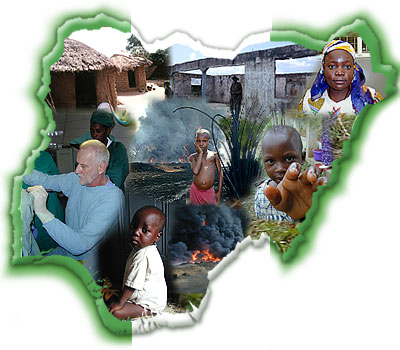A new report launched by Oxfam has revealed that 69 percent of Nigerians are living below the poverty line, thus negatively impacting on the nation’s economic growth.
The Interim Country Director of Oxfam in Nigeria, Mr. Constant Tchona, disclosed this on Tuesday in Abuja at the launching of the first regional report on Commitment to Reducing Inequality Index (CRII), by Oxfam in West Africa; Development Finance International and the Office of Senior Special Adviser to the President on Sustainable Development Goals (OSSAP SDGs).
According to him, Nigeria ranks 125 out of 145 on Gender Inequality Index, adding that governments at national and sub-national level are worsening inequality by under-funding public service, such as healthcare, education, water and sanitation and women’s empowerment.
He said that the index measures of the report compared and ranks West Africa governments’ commitment on three pillars, namely: public spending, taxation and labour markets.
The report revealed that with a population of over 200 million, this reality undoubtedly represents a society with an outrageously lopsided democratic and economic structure that favours and serves the interests of only a few.
The report said that Nigeria runs the most expensive governments in the world, with an over bloated civil service, government advisers and aides, whose salaries are often very high.
The report noted that the Nigerian legislature is reported to be one of the highest paid in the world, paid to preside over the lives of a large majority of Nigerians living in abject poverty.
“The scale of inequality in Nigeria was such that while 75 percent of registered businesses, including those run by the elite do not pay tax, the lower classes cannot escape arbitrary taxation, sometimes with blatant disregard for their human rights,” the report said.
It added that with the misapplication of resources and priorities, economic growth in Nigeria has not created meaningful opportunities and employment as many of the country’s youth, including those with university degrees are currently unemployed.
The report said that extreme inequality hinders economic growth and stifles social mobility, while it also fuels crime and violent conflict.
“Inequality is a catalyst for social tensions within communities, with citizens’ frustrations spilling to increase crime rates and violence in various forms.
“The multi-faceted trajectory of corruption in Nigeria has been severally attributed as one of the major factors that deepen inequality in Nigeria,” it added.
On how the federal government can end inequality, the report stated, “There is an urgent need to critically examine the culture of governance and break the policies and norms that sustain the concentration of wealth and income at the top, to forestall the self-perpetuating cycle of inequality that subjugates many and sustain poverty in Nigeria.
“Economic policies and development strategies should be formulated in a participatory manner and they should have at the core reducing inequality as a key principle. Take urgent actions to bring down the cost of governance.
“It is unacceptable that a large percentage of the budget goes to paying fat remuneration to a small number of public office holders, resources that could improve the living standards of Nigerians by funding healthcare, education as well as the provision of water and sanitation to millions of Nigerians,” it said.

 Join Daily Trust WhatsApp Community For Quick Access To News and Happenings Around You.
Join Daily Trust WhatsApp Community For Quick Access To News and Happenings Around You.


